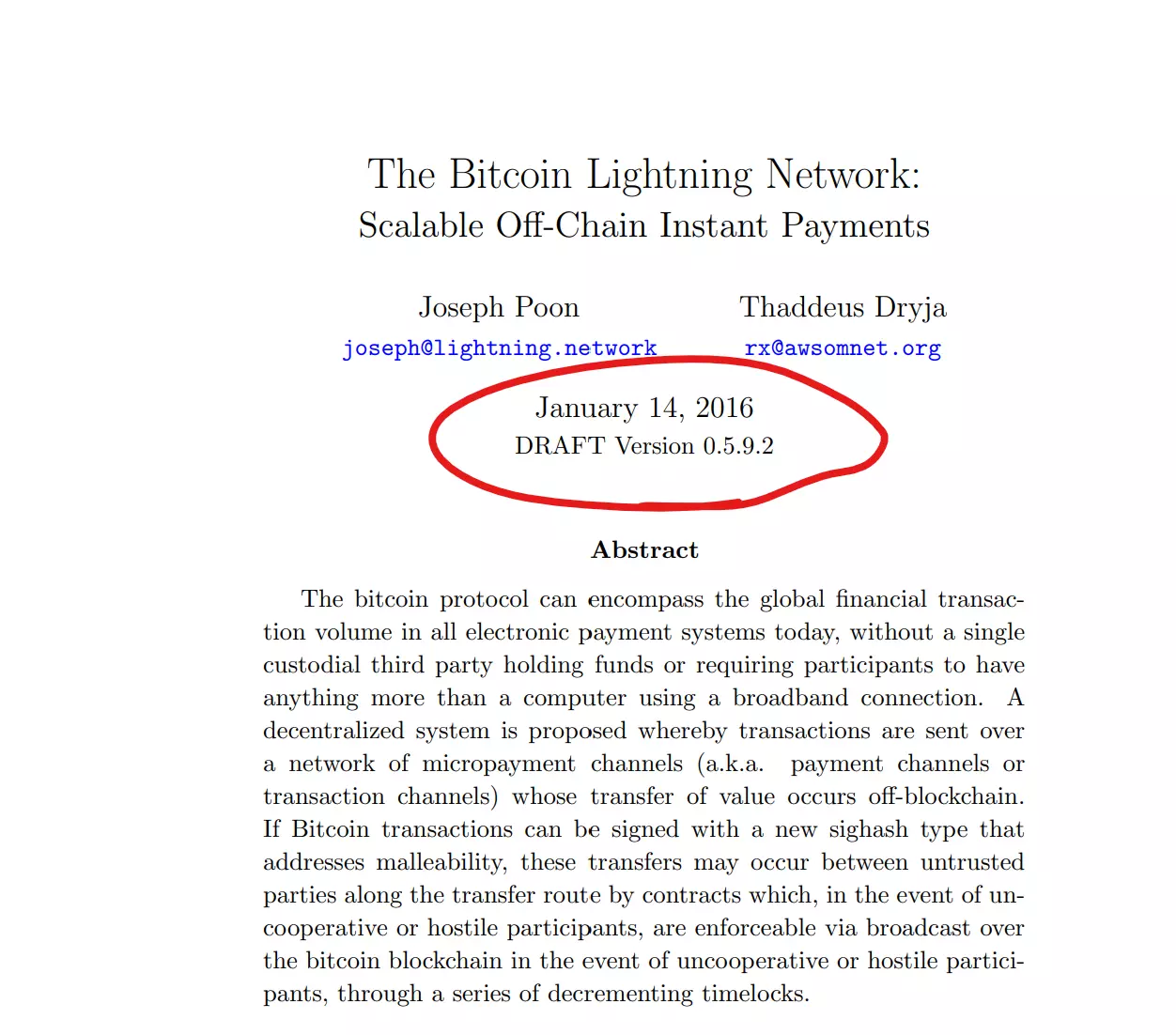The 2015 jumps into the introduction, but the 2016 includes a "Non-technical summary" before the introduction. The summary begins like this:
"This paper extrapolates the growth of Bitcoin as a medium of exchange and conducts the following thought experiment: Suppose that the use of Bitcoin has grown to such an extent that it has replaced existing fiat currencies and has become the predominant medium of exchange or at least the backing for the predominant medium of exchange in a large group of countries."
This presupposition is flawed in my opinion, due to the fact that Bitcoin is not designed, nor is it technically capable of being a worldwide medium of exchange (unless payment layers are built on top**). A Bitcoin Standard would come about not because of Bitcoin's universal medium of exchange capability, but because of it's universal store of value capability COMBINED with it's robustness as a network which has the potential to withstand attack from a nation state (See Erik Voskuil's Axiom Of Resistance). It is these two qualities in tandem which make Bitcoin a comparable asset to gold, in that like gold, there is no way for governments to control the protocol. In the case of gold the protocol is the atomic property of the metal. In the case of gold the protocol is determined by node software that each user chooses to run independently.
If I could amend this section (which exists in a different section of the 2015 paper as well) I would presume the attainment of a global gold standard through the organic, and widespread use of Bitcoin for any purpose at all, but chiefly as a savings tool for the currency, and as a settlement technology for bitcoin the network.
This summary section of the 2016 version recaps the points made in the abstract, but highlights a 4th point:
"4. There would still be financial crises, because they can occur under any fractional reserve financial system."
This is quite true, so I strongly agree with Weber that a feature of the Bitcoin standard would include occasional banking crises. This is actually not the negative part yet. The negative part is next. He writes:
"The paper concludes by speculating that even if the Bitcoin standard were to come into existence, it would not last long, for two reasons: (1) The payments world is changing so rapidly that there will be a technological innovation that provides a potential medium of exchange with the same or greater benefits of Bitcoin or with lower costs. Such an innovation could come either from the private sector or from the government. (2) There would be pressure to return to a fiat money system so that a more activist monetary policy could be pursued."
**Part 1 above is nullified by the fact that Bitcoin requires payment layers. It's universal usage via these layers would obsolete any payment technology and or shitcoin which promised "faster cheaper." The first draft of this paper was published before the Lightning paper by Poon and Dryja came out. So Weber was likely unaware of efforts to scale Bitcoin in layers. Therefore this caveat can be disregarded entirely in my opinion. But to throw even more finality on the subject, it's worth pointing out that "faster, cheaper payments) is an illusion when you understand that "fastness" refers to settlement time, and settlement time is a function of energy expended by the network, NOT by simply changing a perameter in the code to show "faster" confirmations. For a more complete explanation of this please see my tweet thread from 2021: https://twitter.com/ProgrammableTx/status/1394530758358798341?s=20
Weber's second point about pressure to return to a fiat money standard so that activist monetary policy could be pursued is an extremely valid point. But it was much more valid in 2015 and 1016 than it is today. the assertion was made prior to the events of 2020-2023 which have demonstrated the frailties and abuse which is inevitable when activist monetary policy is enacted. This question is a political question which does not present an obvious solution to the financial game theory. Remember that the premise of the paper is that the world has reach a global bitcoin standard through organic use, any citizens or politicians campaigning for a return to activist monetary policy would exist alongside holders of Bitcoin, both nations and individuals. How these competing interests play out is anyone's guess. Especially if you see this question in light of my alteration to Weber's premise, namely that the global bitcoin standard has come about because it is already used by citizens of the world for savings and for exchange. If that state of adoption has occurred then a political campaign to undermine it would face entrenched interests.

